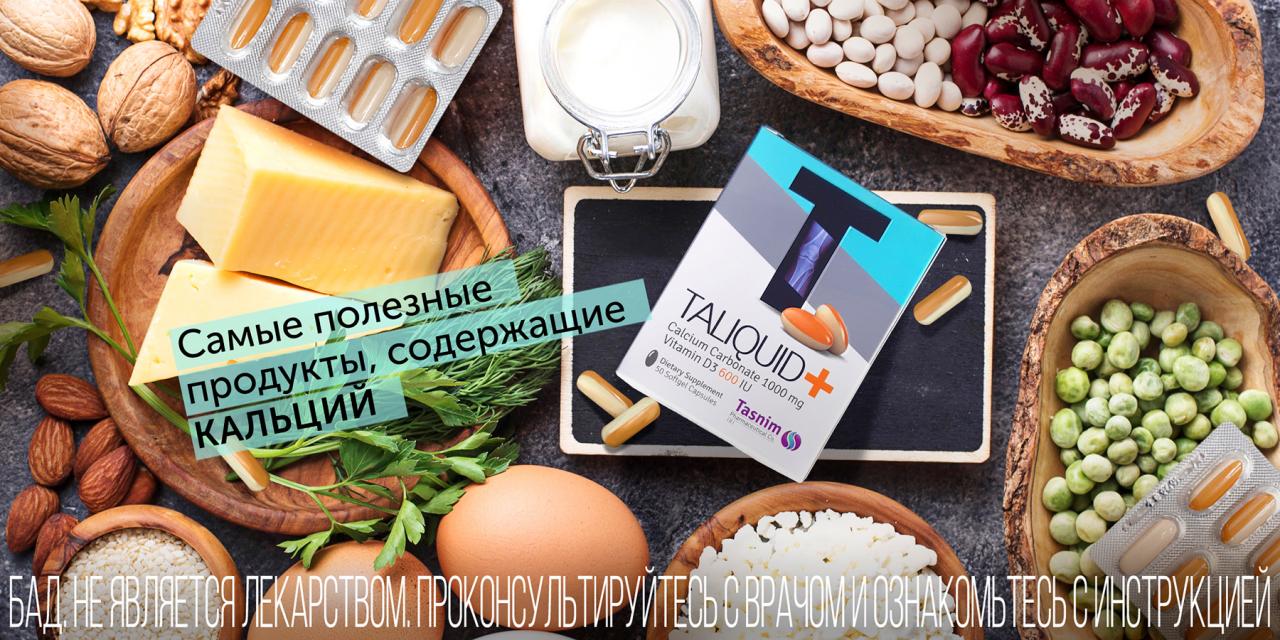[ad_1]

A very important trace element in our body. Calcium is the record holder for the amount contained in the human body. Thus, a middle-aged adult weighing about 70 kg contains about one and a half kilograms of calcium.
Calcium takes part in many vital processes, in addition to the formation of bones and teeth, including the formation and conduction of nerve impulses, helping all the muscles of the body to contract properly. And even slight fluctuations in the level of calcium in the blood can lead to convulsions or gross violations of homeostasis (homeostasis is an internal balanced state of the body).

Calcium in the body its functions
The bones contain a huge amount of calcium, approximately 99% of its total mass. But despite this, calcium is present in absolutely all cells of the body. Calcium is necessary for each of our cells so much that with a critical decrease in its level (hypocalcinosis), metabolic disturbances occur in the cell, and sometimes its death.
Speaking about the functions of calcium, the following should be noted:
calcium — this is the basis of bone tissue, it makes the bones strong, prevents the occurrence of fractures and cracks;
calcium triggers muscle movement (directly takes part in the transmission of an impulse from a nerve cell to a muscle), this applies not only to skeletal muscle fibers, but also to the myocardium — the heart muscle, as well as the intestines, stomach, blood vessels — because they are all surrounded by smooth muscle cells (in fact, these are the same muscles );
calcium, located directly in the muscle fiber, associated with the protein myoglobin and triggers the contraction mechanism, which means that any movement is associated with calcium;
calcium and other trace elements — sodium, potassium, chlorine — regulate the permeability of cell membranes, and memorize controls what enters the cell and what leaves it;
impossible without calcium full functioning of the blood coagulation system. So, calcium ions activate the process of converting the soluble form of fibrinogen into insoluble fibrin fibers. The latter securely “close” the damaged vessel, preventing blood from flowing out;
calcium regulates heart rate. Without it, and also when its amount exceeds the norm (with hypo- or hypercalcemia), arrhythmias, extrasystoles, and even stop effective blood circulation may occur;
calcium in the form of hydroxyapatite is present in the dental tissue. It gives teeth their characteristic properties, primarily hardness. Calcium deficiency can lead to loosening and loss of teeth.;
How calcium deficiency manifests itself
Calcium is so important that there are two special hormones in the human body that are responsible for it. These are parathyroid hormone and calcitonin, which are produced in small parathyroid glands, and if there is a lack of calcium in the blood, they wash it out of the bones (the main calcium depot) and vice versa, when the calcium level is too high, they drive it into the bone tissue.
The most common symptoms of calcium deficiency are:
Decreased bone density (osteoporosis) — This is one of the most dangerous symptoms of calcium deficiency, as it can lead to serious and frequent fractures. Bone density decreases because the body uses calcium for other vital functions by taking it from the bone.
muscle cramps — Muscle cramps are a warning sign of calcium deficiency and usually affect the calf muscles of the thigh. This is because calcium helps regulate muscle contractions.
bruises — Calcium is involved in blood clotting when a blood vessel bursts. With calcium deficiency, bruising is more pronounced after minor injuries or bruises because small capillaries bleed under the skin.
Painful cramps during menstruation — Without calcium, blood cannot clot properly, causing cramping and bleeding during menstruation.
Memory loss — This is one of the most serious signs of calcium deficiency. Calcium ions play an important role in the process of sending nerve signals. When the body lacks calcium, nerve stimulation meets a resistance mechanism in the human body.
Toothache — Bone density decreases when the body needs calcium and takes it from the bones and teeth. This leads to weakening of the teeth, which are more likely to crumble or be affected by caries.
fragile nails — Nails often become brittle as soon as calcium deficiency occurs.
Numbness — This symptom occurs due to low calcium levels in the blood and a malfunctioning nervous system. Most often this happens in severe cases.
exhaustion — A general feeling of tiredness and lethargy may indicate a calcium deficiency. Without calcium, the brain cannot function properly.
How to take Calcium.
With any lifestyle and diet, courses of calcium supplementation will be useful for the prevention and treatment of calcium deficiency in the body. The undoubted advantage of this form is that calcium is easily and adequately absorbed.
Additional composition
Vitamin D3. You can often see a combination of calcium and vitamin D3. The fact is that these are mutually potentiating (enhancing the action of each other) substances. In addition, vitamin D3 is not absorbed in the intestines without calcium.
daily intake of calcium
The norm of calcium intake for a person is 800-1200 mg per day. At the same time, the dose is closer to the upper one — for adolescents and young people under 25 years old. That is, during the period of active growth and formation of bones, it is necessary to consume more calcium with food. Everyone else needs 800-1000 mg of calcium per day to prevent diseases associated with its deficiency.
If you consume 2-3 glasses of milk per day, and also eat enough calcium-containing foods, you can stop at a dosage of 400-600 mg per day.
Calcium is recommended to be consumed in the evening, along with dinner. Since the maximum level of calcium intake by the body falls at night. It is important to remember that with a lack of calcium, it is washed out of the bone tissue, which eventually leads to its diseases.
Profitable in price and in its maximum digestibility, this Calcium D3 Taliquid.
Manufactured using modern technologies according to international GMP standards. Unique Calcium d3 suspension in capsules. Designed to be absorbed in the small intestine! It is currently on WildBerries.
A wonderful gift for family and friends with health care!

[ad_2]

Добавить комментарий
Для отправки комментария вам необходимо авторизоваться.